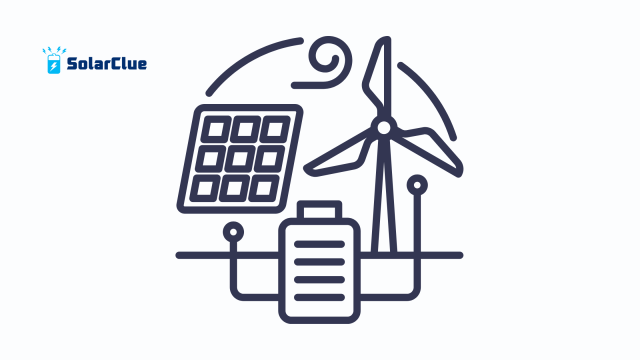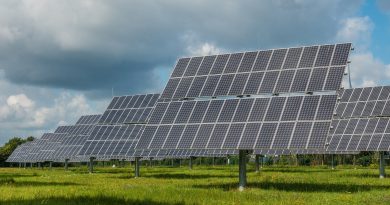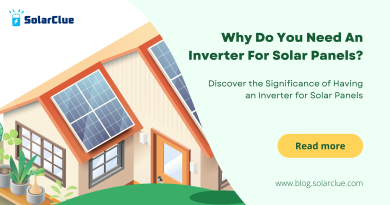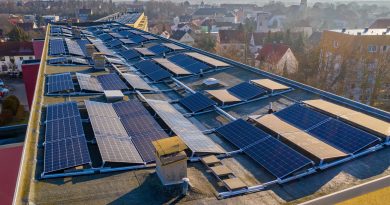Common Myths About Solar Power Busted
The world is rapidly embracing solar power as a clean, renewable energy source. Yet, despite its growing popularity, several myths still surround the use of solar energy. These misconceptions often discourage people from switching to a solar power system that could save them money and benefit the environment. In this blog, we’ll break down the most common myths and uncover the truth about solar solutions.
Table of Contents
- 1 Myth 1: Solar Power Doesn’t Work on Cloudy or Rainy Days
- 2 Myth 2: Solar Power Systems Are Too Expensive
- 3 Myth 3: Solar Panels Require Constant Maintenance
- 4 Myth 4: Solar Energy Isn’t Reliable
- 5 Myth 5: Solar Panels Will Damage Your Roof
- 6 Myth 6: Solar Power Isn’t Worth It Unless You Live in a Sunny Climate
- 7 Myth 7: You Can’t Use Solar Power at Night
- 8 Myth 8: All Solar Panels Are the Same
- 9 Myth 9: Solar Panels Lower Property Value
- 10 Myth 10: Solar Panels Are Ugly
- 11 Myth 11: Installing Solar Is Complicated
- 12 Myth 12: Solar Energy Is Only for the Wealthy
- 13 Myth 13: Solar Panels Don’t Last Long
- 14 Myth 14: You Have to Go Off-Grid to Use Solar Power
- 15 Myth 15: Solar Power Is Not Eco-Friendly to Produce
- 16 Conclusion
- 17 FAQs
Myth 1: Solar Power Doesn’t Work on Cloudy or Rainy Days
The Truth: Solar Panels Still Generate Power in Low Light
One of the biggest myths is that solar panels stop working when the sun isn’t shining. In reality, modern solar panel technology can still generate electricity even on cloudy or rainy days. While the efficiency may drop, the system doesn’t shut down. Countries like Germany, which get less sunlight than many parts of India, are global leaders in solar power adoption.
Myth 2: Solar Power Systems Are Too Expensive
The Truth: Solar Is More Affordable Than Ever
Years ago, this myth might have had some truth. But thanks to declining costs and government subsidies, installing a solar power system is now more affordable than ever. In fact, with financing options and tax incentives, many homeowners see a return on investment within a few years.
Myth 3: Solar Panels Require Constant Maintenance
The Truth: They’re Mostly Maintenance-Free
Another widespread misconception is that solar panels are high-maintenance. The truth? They require minimal upkeep. Occasional cleaning and annual inspections are generally enough to keep your solar energy system running efficiently.
Myth 4: Solar Energy Isn’t Reliable
The Truth: Solar Systems Include Battery Storage Options
Critics often argue that solar power isn’t reliable due to its dependence on sunlight. But advancements in battery storage allow excess energy to be stored for later use. Whether it’s during nighttime or power outages, you can still rely on your solar power system.
Myth 5: Solar Panels Will Damage Your Roof
The Truth: Proper Installation Prevents Any Damage
When installed correctly by professionals, solar panels won’t damage your roof. In fact, they can protect the portion of the roof they cover from weather and UV damage. Always hire certified installers like those recommended on SolarClue for peace of mind.
Myth 6: Solar Power Isn’t Worth It Unless You Live in a Sunny Climate
The Truth: Efficiency Depends on Many Factors
Yes, sunshine helps, but even regions with moderate sun exposure can benefit from solar. Panel angle, system size, and local energy costs also play roles in how effective your system is.
Myth 7: You Can’t Use Solar Power at Night
The Truth: Stored Energy Bridges the Gap
Nighttime power use is handled by solar batteries or by staying connected to the grid. Your solar energy system doesn’t leave you in the dark after sunset.
Myth 8: All Solar Panels Are the Same

The Truth: Quality and Efficiency Vary
Just like any product, solar panels vary in quality, efficiency, and durability. Choosing high-efficiency panels ensures better performance and longevity. Learn more about choosing the right panel on blog.solarclue.com.
Myth 9: Solar Panels Lower Property Value
The Truth: They Often Increase It
Contrary to this myth, studies show that homes with solar power systems actually sell faster and for more money. Buyers appreciate lower electricity bills and a smaller carbon footprint.
Myth 10: Solar Panels Are Ugly
The Truth: Modern Designs Are Sleek and Stylish
Aesthetic concerns used to be valid, but today’s solar panels are much sleeker. Innovations include frameless designs and solar shingles that blend in with the roof.
Myth 11: Installing Solar Is Complicated
The Truth: Installation Is Quick and Easy
Professional installers can typically set up a residential solar system in a few days. Companies also handle most of the paperwork, including permits and grid connections.
Myth 12: Solar Energy Is Only for the Wealthy
The Truth: Financing Options Make It Accessible to All
From government loans to EMI plans, multiple financing options are available. This makes solar power accessible to middle-income households as well.
Myth 13: Solar Panels Don’t Last Long
The Truth: Panels Last 25+ Years
Most solar panels come with a 25-year warranty and often continue working efficiently even after that. They are a long-term investment in your energy independence.
Myth 14: You Have to Go Off-Grid to Use Solar Power
The Truth: Most Systems Are Grid-Tied
You don’t have to go off-grid. In fact, grid-tied systems are more common and allow you to sell excess electricity back to the utility, offering additional savings.
Myth 15: Solar Power Is Not Eco-Friendly to Produce
The Truth: The Long-Term Benefits Outweigh Initial Impact
While there is some environmental cost to manufacturing solar panels, it is far outweighed by the clean energy they produce over their lifetime.
Conclusion
In summary, solar power is not only a viable energy solution, but it’s also smart, sustainable, and increasingly affordable. From cost and maintenance to efficiency and aesthetics, the myths surrounding solar power systems often prevent people from embracing this revolutionary technology. Don’t let misinformation keep you from making a positive change.
Visit SolarClue.com today to discover how you can start your journey with solar. Or explore detailed guides and tips on blog.solarclue.com to deepen your knowledge.
FAQs
Q1. Do solar panels work during a power outage?
Yes, if you have a battery backup system or a hybrid solar inverter, your system can provide power during outages.
Q2. Are there tax benefits for installing solar panels in India?
Yes, the Indian government offers subsidies and tax incentives for residential solar energy systems.
Q3. How much space do I need for a solar installation?
A typical residential system may need 100–300 sq. ft. of roof space, depending on your energy needs.
Q4. What is net metering and how does it help?
Net metering allows you to sell excess power generated by your system back to the grid, reducing your electricity bill.
Q5. Can I expand my solar system later?
Absolutely! Most systems are scalable and can be upgraded as your energy needs grow.




